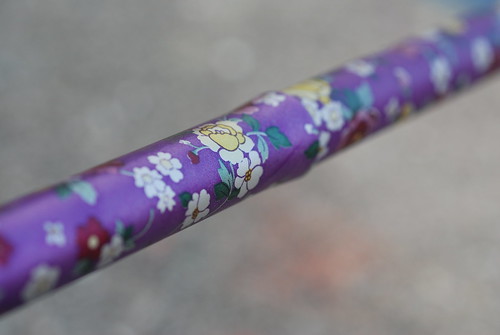Today is winter solstice, so after today the days start getting longer again, which will be much appreciated.
Hope you all have a fab Christmas time!
About me? Mad, disabled, in debt, feminist, radical, angry, pacifist, warrior, radio 4 listener, geek, flower-power chick... About Hippie blog? Ramblings, photos, fury, giggles and musings about love, peace, friendship, madness, happiness, the state of the world, my life, cool pics, my health and general ranting...
Italians shrug off extramarital sex, yet they are prim in their attitudes to premarital sex, at least outside the stable context of fidanzamento (engagement). They use the same words for boyfriend and fiance.
So many were taken aback to learn that, by the time she was arrested at the age of 20, Knox had had sex with seven men. They were less outraged by how this information was obtained: Knox was told in prison she was HIV-positive and asked to write a list of her lovers. Before she was told that a mistake had been made, the list was passed to investigators, one of whom passed it to a journalist.

Pippa, PO Box 4663, Sheffield, S1 9FNAlternatively if you want to get any of my zines just let me know when you order that you want some of the magazine flyers and I'll stick some in the envelope for you.
I'm in a board meeting. Having a miscarriage. Thank goodness, because there's a f**ked-up 3-week hoop-jump to have an abortion in Wisconsin.
there are many women who want the baby and have a miscarriage. I was one of them. I cried for days. I get it.
I am four months pregnant. But the baby is dead, inside me, and must be removed. I am devastated. I always knew this could happen, in the back of my mind. But you are never prepared for something like this to happen.
To all of you who said I should not be happy about having a miscarriage: You are the ones short on empathy. Any woman who is pregnant but wishes she weren’t would of course be grateful when she has a miscarriage. [...]
But if you have ever had an abortion, which I have, you would know that a miscarriage is preferable to an abortion. Even the Pope would agree with that.
not talking about a miscarriage or an abortion—or all the complicated feelings that can get rolled up in both—because it's just too personal is fine. But not talking about it because no one else ever talks about it—so maybe we're just not supposed too—is not.
Isn't it a shame that writing about disability and feminism and inclusivity is something that is still a remarkable thing?
I know disabled feminists have a lot to offer - we have been forced to plumb the depths of our ingenuity to do the things we want to, using as few spoons as possible, and to choose our battles because we simply have to prioritise everything, everyday. Feminism has always benefited from the ingenuity of women - letting disabled people in will only add to this. We are another voice in the choir that will make the song sweeter and stronger.
Our Greetings Card Campaign brings people across the world in touch with each other in a simple way - by sending a card with a friendly greeting or message of solidarity to someone who is in danger or unjustly imprisoned.
Below are 32 stories about people around the world who have suffered human rights abuses and would benefit from a card with a friendly greeting or message of support.
Between 1 November 2009 and 31 January 2010 we'd like you to write to as many of them as you like and remember that just one personalised message will mean the world to a prisoner in a cell or a family waiting for news of a loved one.
Bankrupt the BNP!
Well, maybe not quite bankrupt, but folks in the UK can help make this bunch of fascists considerably poorer.
They've just got themselves a freepost address:
British Heritage FREEPOST
Nice and easy to remember eh? Every 'letter' to this address costs them 42p, and can simply be an empty envelope with the address on it. It's cheap to buy a bunch of these (you can get 50 self-seal ones for 75p from Wilkos) and run them through your printer while you're off doing far more interesting things. A friend has so far sent 1250 envelopes, costing the fash over 500 quid. That's less than £20 of my mate's hard-earned cash very well spent!
Please feel free to join in.
42p may not sound like much, but it would pay for dozens of BNP leaflets. Multiply that by potentially tens of thousands of empty envelopes sent their way and the impact on their activities becomes much more obvious. And when an envelope costs little more than a penny, it really does make sound economic sense!
We're advised that it's not worth sending heavy objects as they'll be filtered out at the sorting office, and we don't want to make our posties' jobs even harder than they already are.
Feminism needs to integrate disability politics, needs to embrace disabled women and our experiences, to be fully feminist. Excluding disabled women from feminist academia, analysis, activism and community not only is crap for the disabled woman, it prevents feminism from becoming all it needs to be to liberate women.
